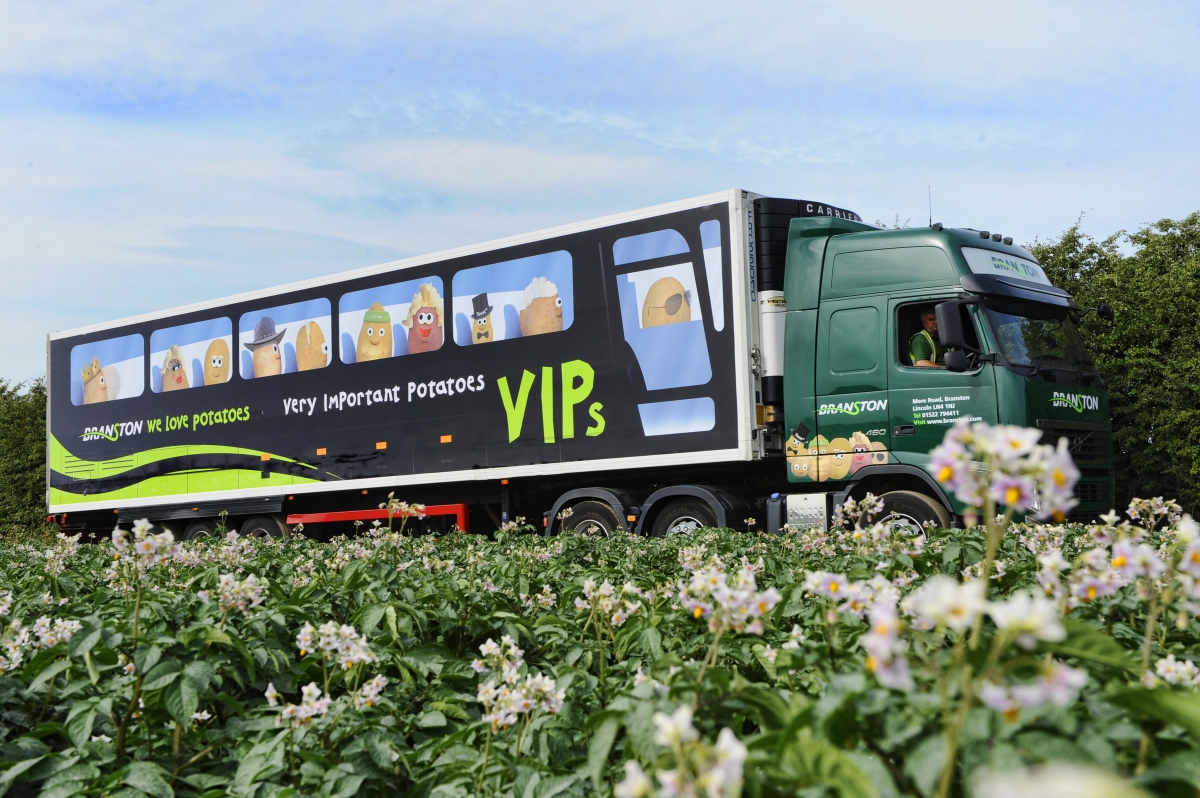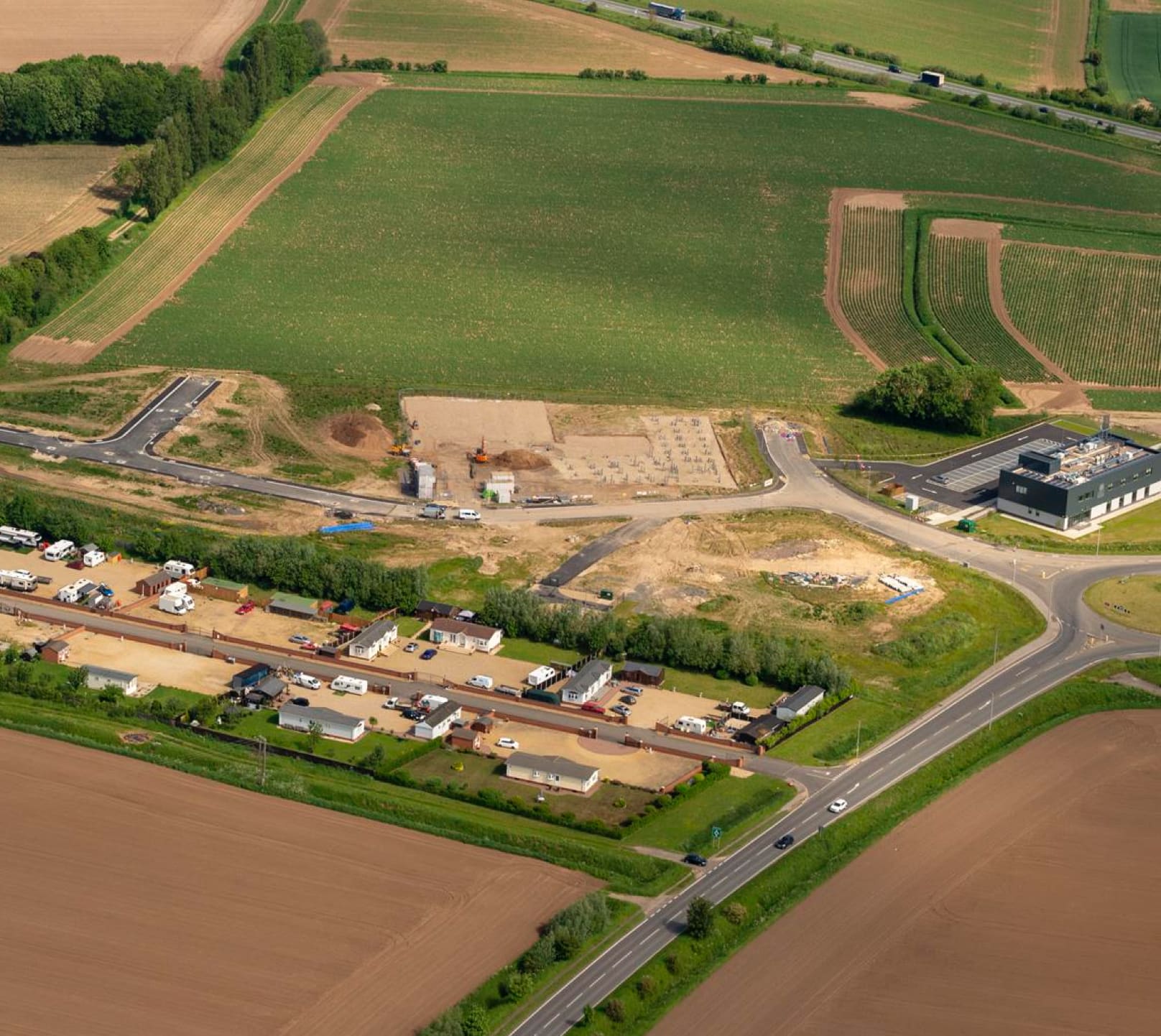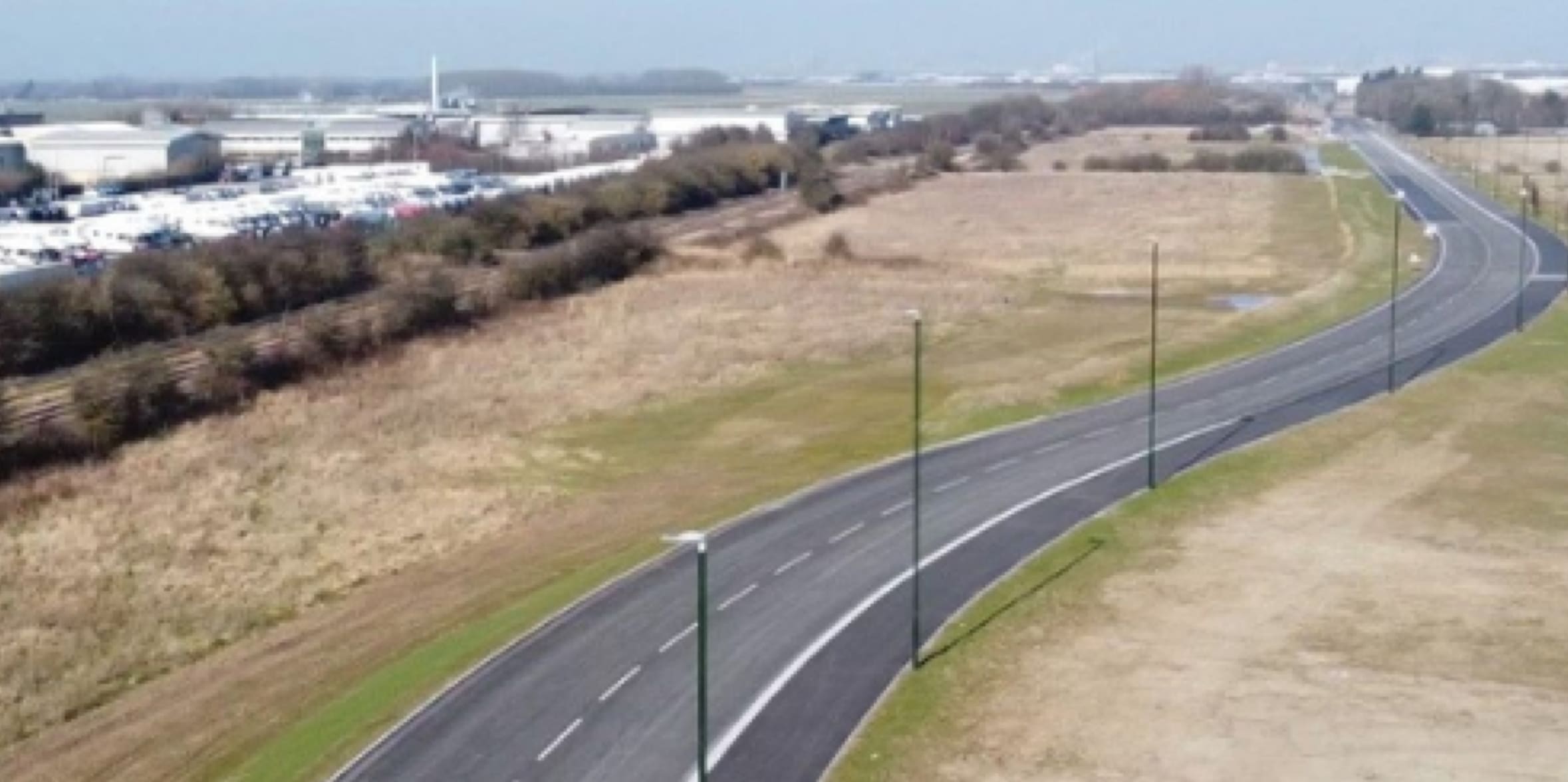
Industrial (B2)
Research & Development
Retail
UK Food Valley
The UK Food Valley is a sector growth programme supported by industry, the research and knowledge community and public sector. It champions the area’s leadership in the UK food chain aiming to be a global top 10 food cluster, with 75,000 employees and 6,000 companies. The Food Valley is seeing major investment, over £2.5billion invested in the last 5 years creating over 7,500 jobs, in the end to end food chain.
The Food Valley supports investors by working to secure the future workforce and skills, innovation support, access to premises and infrastructure including energy, water and transport systems, needed to support growth. It works with planners to create a welcoming environment for food companies. The Food Valley focuses on three major cross industry themes: automation and digitalisation of the food chain to drive efficiency and support high value jobs; the delivery of low carbon food chains from farm to fork; naturally good for you food and protein transition. The Food Valley supports growth in all sectors of the food chain, but is focusing on three major industry sub-sectors where it is seeing the fastest growth: fresh produce and controlled environment agriculture; fish processing and aquaculture; food logistics and cool chain.
Key facts
• Responsible for 11% of English agriculture
• Over 75,000 employees in agriculture, food processing, food marketing, distribution and agrifood technology and research
• Top 5 global fish processing cluster in Grimsby supporting 10,000 jobs
• UK leading centre for fresh produce with over 30,000 food chain jobs in South Lincolnshire
• UK leading centres for food logistics, with UK’s largest bulk port on the Humber, including Freeport status, and UK’s largest food logistics cluster in Spalding which dispatches over 1,200 finished lorry loads of food per day
• Over 70 international companies and 6,000 SMEs
Europe’s largest agrifood robotics team at Lincoln Institute for AgriFood Technology (LIAT), National Centre for Food Manufacturing (NCFM), new agricultural college (Bishop Burton Showground Capmpus) and Lincoln Institute of Technology, together representing over £100m of investment since 2016
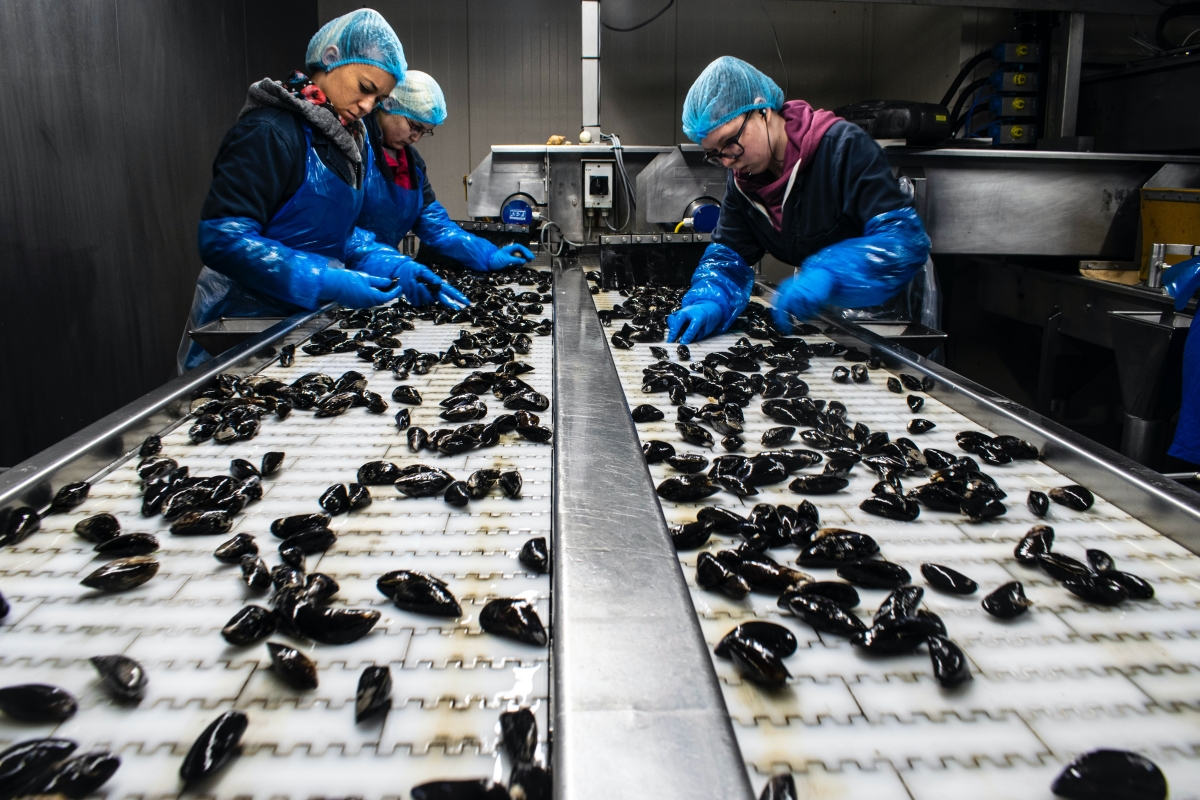
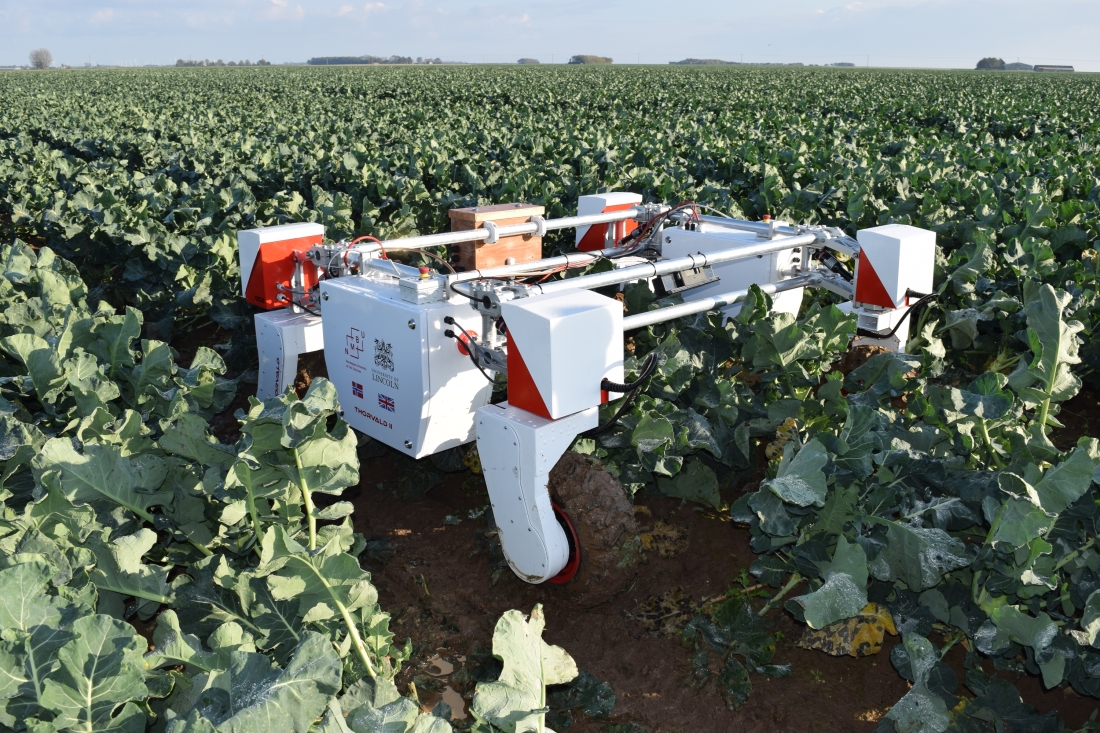
Opportunity location
Why invest in Greater Lincolnshire?
Greater Lincolnshire and Rutland is currently experiencing an unprecedented era of growth and is undoubtedly one of the investment hotspots of the UK. The geography is vastly unique from The Humber to The Wash, covering 2,700 miles with a population of 1.1million. Our game changing sectors include the Humber Freeport, Renewable Energy, the UK Food Valley, Food enterprise Zones (FEZ’s), including the South Lincolnshire Food Enterprise Zone at Holbeach and Europarc III Food Enterprise Zone at Grimsby and Defence & Security. Our thriving Universities are some of the fastest growing in the UK, providing access to a growing talent pool, fuelling academia, and creating a skilled workforce. wide-open spaces and fresh air regulate and invigorate innovation.
Offering a range of high quality, cost effective sites and property solutions for all types of investing businesses. From specialist logistics and sector sites, employment parks, start-up hubs, or shovel ready land ripe for development. We are strategically located to enable fast, multimodal access to UK and international markets. Our Ports put your customers at easy reach wherever they are based. Our sites offer fast access to both UK and global markets, either via road, sea, air or rail.
If you are interested in finding out more about Greater Lincolnshire please take a look at our Sector Propositions and get in touch at investment@lincolnshire.gov.uk
Insight for investors
- Target Investor(s): Agriculture, food processing, food chain, agrifood technology and research companies from the UK and globally
- Type of Investment Sought: Investment in production, processing, supply chain, research and innovation; Investment through FDI, Joint Ventures, Venture Capital and debt finance.
- Value and cost info: Over £2.5billion invested creating over 7,500 jobs since 2016, with plans to secure a further £5billion of investment and create 11,000 jobs by 2030
- Site Size: UK Food Valley area has 600,000 hectares of farmland, in addition to multiple food business parks, food enterprise zones and food distribution centres
- Jobs: UK Food Valley cluster already has 75,000 employees in the sector, with plans to increase this by 11,000 by 2030
- Timescale: Long term programme, with detailed targets to 2030, but growth ambitions beyond this.
Associated opportunities
